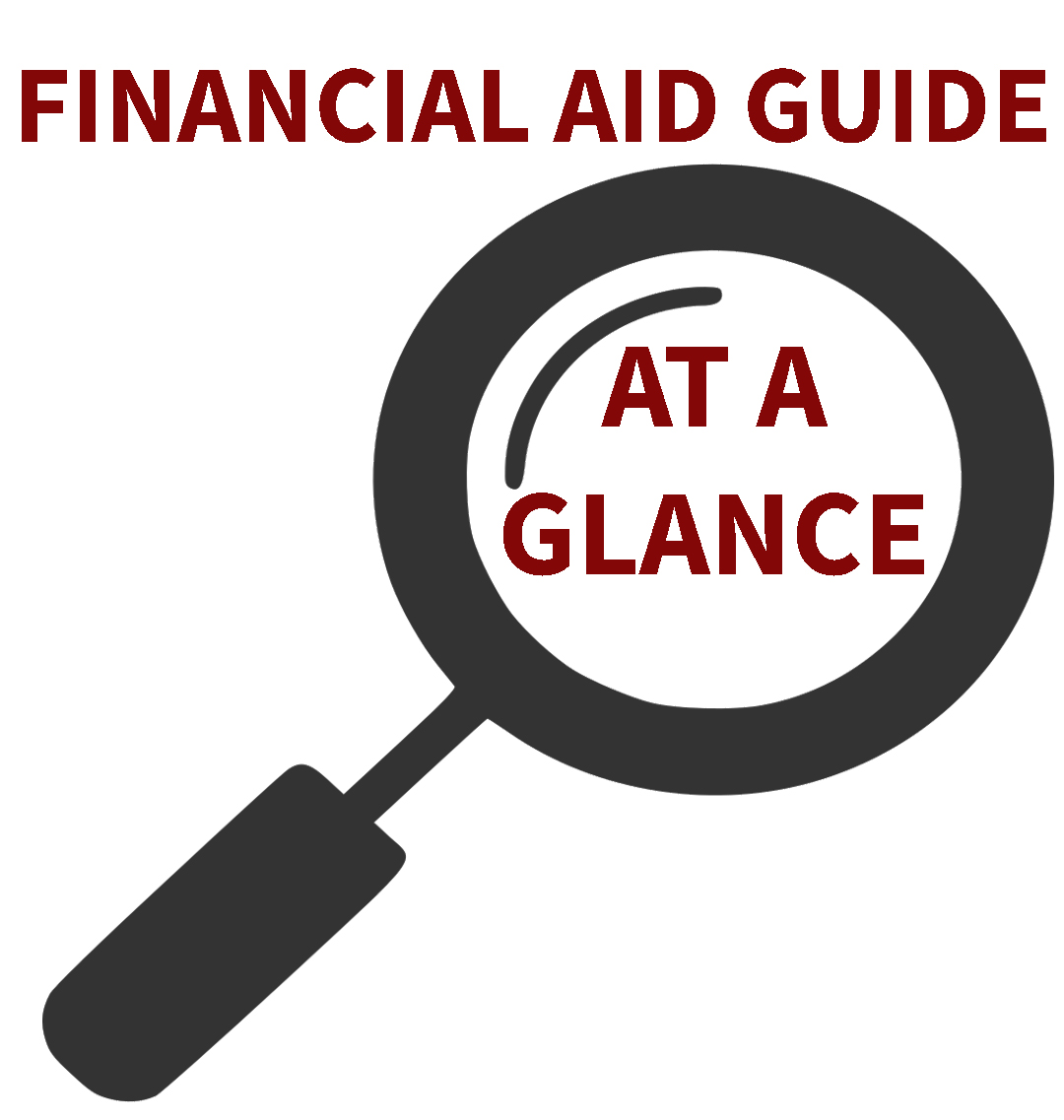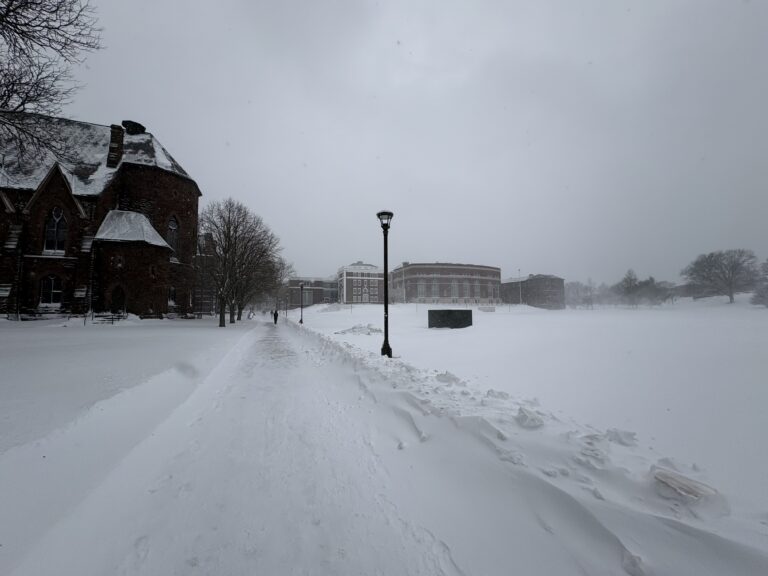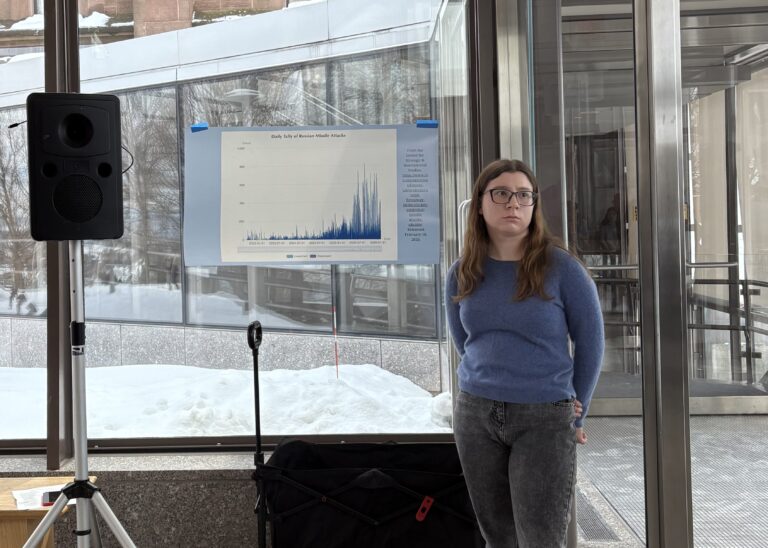Financial Aid Office Launches Initiatives to Help Families Through Stress of COVID-19
Over the past year, the Financial Aid Office has instituted new precedents to help both current and incoming students in the context of COVID-19.
The Financial Aid Strategy Working Group aims to ease the financial burden on students and families as they pay for the cost of a Wesleyan education. The group has met several times over the past year to figure out the best way to support students and their families during the financial stress of the pandemic. The group is comprised of senior members of the administration and representatives from Admission and Financial Aid, Academic Affairs, Communications, Equity & Inclusion, Finance, the President’s Office, and Student Affairs. Some of these members include Director of Financial Aid Robert Coughlin, Vice President for Student Affairs Dean Mike Whaley, Vice President and Dean of Admission and Financial Aid Amin Gonzalez ’96, Vice President for Equity and Inclusion/Title IX Officer Alison Williams, and Dean for Academic Equity, Inclusion and Success April Ruiz.
“The financial impact of the pandemic was huge for Wesleyan and also for many of our students, especially those who already had financial need,” Williams wrote in an email to The Argus.
The Working Group had to navigate the shifting financial landscape of the economy and the pandemic to help students pay for college.
“While we were inactive conversations about various initiatives that could make Wesleyan more affordable and improve the experience of higher need students, the significant toll the pandemic was taking on students/families accelerated our implementation timeline of some initiatives,” Gonzalez wrote in an email to The Argus.
Coughlin explained that the Financial Aid Office has reacted to the consequences the pandemic has had on many Wesleyan students and their families by attempting to ease their financial burden.
“Given the pandemic’s widespread economic effect, the Financial Aid Office reevaluated its Request for Reconsideration (i.e., Appeals) process, offering greater flexibility that has resulted in more successful outcomes for increased financial aid,” Coughlin wrote in an email to The Argus. “The review process has become more accommodating, allowing for a shorter time period of a change in financial circumstances for a request to be considered.”
The Financial Aid Office has also coordinated the Wesleyan Emergency Relief Fund, which provides emergency grant funding to eligible students with incurred expenses resulting from the pandemic, according to Coughlin.
Another area of change for the Financial Aid Office is the institution of health insurance grants, beginning with the class of 2024. These grants are for domestic students who are unable to opt-out of the University’s health plan since they cannot provide proof of comparable health insurance.
“Typically, this program benefits students whose families are on state Medicaid plans that cannot be transferred for service to Connecticut,” Coughlin wrote. “Prior to implementation, these students would need to seek out Connecticut’s state Medicaid program or borrow to cover the cost of the university health insurance. Now, eligible students will receive coverage for participation in the University-sponsored plan, reducing another financial barrier. Introducing this initiative has been well-received, as affected students felt that the University was not meeting their true financial need otherwise.”
Coughlin noted that international students, independent students, and undocumented/DACA students have qualified for these health insurance grants in years prior.
In addition to finding ways to help current students, the Financial Aid Office has implemented initiatives to benefit admitted students in the class of 2025 and beyond. One such change is the reassessment of the Institutional Methodology Need Analysis formula, which has been expanded to soften the parental contribution for middle-income families, in addition to the low-income families already benefiting from the formula.
“Essentially all Class of ’25 students qualifying for need-based institutional aid will benefit from this change,” Coughlin wrote. “While the amount of parental contribution reduction will vary based upon an individual family’s circumstances, parental contributions for middle to upper-middle-income families generally will recognize the greatest benefit.”
Another new initiative is start-up grants, which will provide $500 to students with a parental contribution of $4000 or less to help them with one-time costs of adjusting to college at the start of the school year.
“The Start Up Grants initiative came from the Financial Aid Strategy Working Group members sharing observations and concern for students whose transitions to Wesleyan were challenged from the outset because they lacked sufficient resources to cover essentials many of us take for granted,” Gonzalez wrote.
Coughlin explained that the goal of the start-up grants is to make the adjustment to Wesleyan easier for high-need students.
“We hope that this initiative will allow for a smooth and positive introduction to Wes, enabling students to explore all that Wesleyan has to offer free of financial stress,” Coughlin wrote.
Ruiz emphasized that these funds extend beyond traditional financial support to provide a more holistic approach to aid.
“With these start-up grants, Wesleyan is not only recognizing the burden that costs associated with settling into life at college can present to many families, but we are also committing to mitigating this burden,” Ruiz wrote in an email to The Argus. “This is a significant step on our path toward ensuring all students feel welcome and supported.
Whaley highlighted that the start-up grants will standardize this money to provide consistent and more robust support for students during their transition to living on campus.
“For students with very limited resources, purchasing supplies for the dorm room and classroom can be a real struggle,” Whaley wrote in an email to The Argus. “For example, consider a student coming to Wes from a warm climate—they will need warm clothes for the winter months and may not have the resources to purchase these items. While they may have needed emergency funds from my office or taken advantage of the winter clothes drive at the Resource Center, they will now have some funds through financial aid to cover such costs.”
Another program to help incoming classes (2025 and beyond) is the expansion of the No Loan Initiative.
Coughlin explained that the No Loan Initiative has existed since 2008 and has been given to students whose parental incomes are under $60,000 since 2014. This initiative will be expanded to include students in the class of 2025 and beyond whose parental incomes are $120,000 or less.
Now, the initiative will provide additional grant support to students in lieu of a $19,000 packaged loan over four years. Students who qualify for the initiative based on the new threshold for parental income will be able to graduate from the University debt-free.
“The Loan Initiative stemmed from the realization that our existing policy had not been revisited in several years as well as our ongoing commitment to make Wesleyan more affordable for more families,” Gonzalez wrote.
These initiatives all aim to make a Wesleyan education more affordable and accessible to a wider range of students.
“This commitment involves a continuous assessment of: (1) our cost of attendance budgets to confirm that our budget expenses are appropriate and realistic; (2) our need analysis formula to ensure that our family contributions are equitable and reasonable; and (3) our awarding policies to ensure that our financial aid packages are the most favorable possible,” Coughlin wrote. “These initiatives developed out of a review of these areas.”
Coughlin also mentioned how President Michael Roth ’78 has continually supported the financial aid team and their commitment to accessibility and affordability.
While the Financial Aid Office adapted to meet the changing needs of students and families during the pandemic, members of the Financial Aid Strategy Working Group stressed the importance of the work they are doing.
“The Financial Aid Office is made up of dedicated and compassionate individuals who are working exceptionally hard on [students’] behalf,” Gonzalez wrote.
Coughlin urged students to reach out to the Financial Aid Office if they are experiencing financial difficulty.
“The Financial Aid Office is here to help, to provide students with information on the best options available to assist with their educational expenses,” Coughlin wrote. “We listen to students’ needs and concerns; it is through these conversations that we are able to raise awareness of the greatest financial aid priorities. These conversations can result in the introduction of new initiatives such as the ones being implemented at this time!”
Rachel Wachman can be reached at rwachman@wesleyan.edu








Leave a Reply